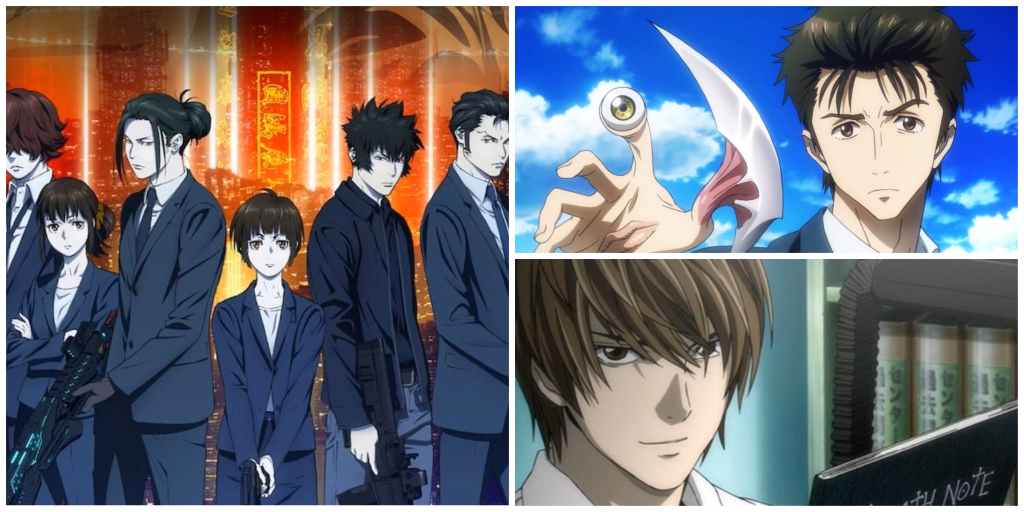
Anime, often perceived as a form of entertainment catering to a younger audience, houses a treasure trove of narratives that transcend mere amusement. Within its colorful canvas, profound themes and philosophical questions intertwine, inviting viewers to contemplate existence, morality, and the human condition. This article delves into the captivating world of anime that not only entertains but also challenges and stimulates thought. We will explore the ways in which these anime spark philosophical contemplation, examine specific examples of animes for philosophical minds that delve into complex themes, and discuss the broader impact of these works on viewers.
The Philosophical Depth of Anime: A Gateway to Intellectual Exploration
Anime, as a medium, possesses the unique ability to blend imaginative worlds with intricate storytelling, allowing for the seamless integration of philosophical concepts. It serves as a gateway to intellectual exploration, encouraging viewers to ponder life’s complexities in a way that is both engaging and thought-provoking. Anime creators skillfully weave profound ideas into their narratives, addressing existentialism, free will, the nature of reality, and the pursuit of happiness. These themes are presented through compelling characters, gripping plots, and visually striking animation, making philosophy accessible and captivating for a broad audience.
Anime That Sparks Philosophical Contemplation: Examples That Enrich the Mind
Several anime titles stand out for their ability to provoke deep thought and stimulate philosophical discussion. These works grapple with complex themes, challenging viewers to examine their own beliefs and perspectives.
- “Ghost in the Shell: Stand Alone Complex” tackles the question of what it means to be human in an age of advanced technology. It explores the blurring lines between man and machine, the nature of consciousness, and the implications of artificial intelligence.
- “Neon Genesis Evangelion” delves into the depths of human psychology, examining themes of isolation, identity, and the existential angst that accompanies adolescence. It prompts viewers to reflect on their own struggles with self-acceptance and the search for meaning in a seemingly chaotic world.
- “Fullmetal Alchemist: Brotherhood” offers a meditation on the concept of equivalent exchange, the idea that everything in life comes at a cost. It explores the consequences of ambition, the nature of good and evil, and the importance of family and personal connections.
- “Psycho-Pass” paints a dystopian future where the government measures and judges individuals based on their mental states. This anime challenges viewers to consider the implications of a society obsessed with maintaining order at the expense of personal freedom.
- “Death Note” explores the morality of vigilantism and the corrupting influence of power. It raises questions about justice, the value of human life, and the consequences of playing God.
- “Monster” is a psychological thriller that examines the nature of evil and the darkness that lurks within the human heart. It questions the concept of inherent good and explores the potential for even the most seemingly ordinary individuals to commit acts of unimaginable horror.
Related: Noragami season 3 release date and characters
The Impact of Philosophical Anime: Nurturing Critical Thinking and Empathy
Philosophical anime has a profound impact on viewers, fostering critical thinking, empathy, and a deeper understanding of the world. By engaging with complex themes and challenging narratives, such as those explored in BleachExile, audiences are encouraged to question their own assumptions and consider alternative perspectives. To delve deeper into these thought-provoking concepts, explore more resources and discussions related to philosophical anime.
- Critical Thinking: Anime prompts viewers to analyze characters’ motivations, evaluate moral dilemmas, and contemplate the consequences of different choices. This active engagement with the narrative cultivates critical thinking skills and encourages audiences to think beyond the surface level of the story.
- Empathy: Anime often explores the human experience from diverse perspectives, offering insights into the struggles and triumphs of characters from different walks of life. This exposure to a wide range of experiences nurtures empathy and fosters a greater understanding of the human condition.
- Self-Reflection: Philosophical anime prompts viewers to examine their own beliefs and values, encouraging introspection and personal growth. By grappling with the questions raised by these anime, audiences gain a deeper understanding of themselves and their place in the world.
The Broader Significance of Philosophical Anime: A Cultural Phenomenon with Lasting Influence
Philosophical anime transcends entertainment, becoming a cultural phenomenon with a lasting impact on society.
- Intellectual Discourse: It sparks conversations and debates about the complex themes it addresses, contributing to intellectual discourse and shaping cultural narratives.
- Artistic Expression: It demonstrates the power of anime as a medium for artistic expression, showcasing its ability to tackle profound subjects with depth and nuance.
- Global Reach: Its global reach and popularity highlight the universal appeal of philosophical questions and the human desire to explore the mysteries of existence.
Conclusion
Animes for philosophical minds that stimulate thought invite viewers on a journey of intellectual discovery. These works challenge, inspire, and enrich the mind, prompting us to question our beliefs, expand our perspectives, and embrace the complexities of the human experience. Whether it’s grappling with existential questions, exploring moral dilemmas, or contemplating the nature of reality, philosophical anime provides a unique and captivating platform for philosophical contemplation. As the popularity of anime continues to grow, its potential to spark intellectual curiosity and foster meaningful discussions is undeniable. Anime is not just a form of entertainment; it’s a catalyst for thought, a mirror reflecting the complexities of the human condition, and a testament to the power of storytelling to illuminate the depths of the human soul. So, the next time you find yourself drawn to the captivating world of anime, remember that it’s not just an escape from reality, but an invitation to delve deeper into the mysteries of life itself.

